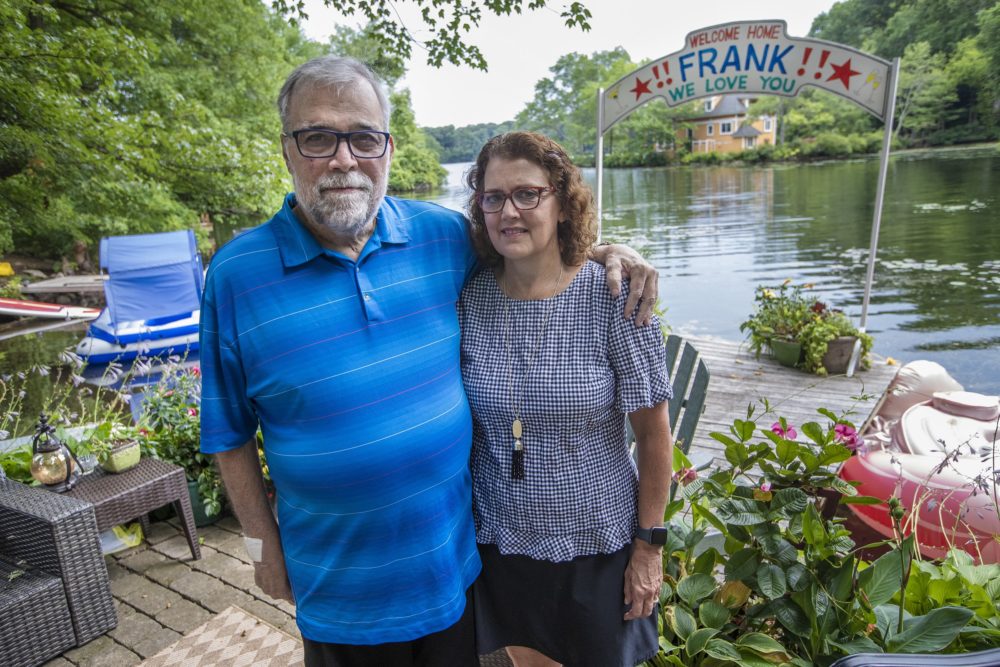Another COVID-19 Medical Mystery: Patients, Post-Ventilator, Who Don’t Wake Up

Frank and Leslie Cutitta at their home in Wayland where a banner still hangs for his return from the hospital. (Jesse Costa/WBUR)
Leslie Cutitta said yes, twice, when clinicians from Massachusetts General Hospital called asking if she wanted them to take — and then continue — extreme measures to keep her husband Frank Cutitta alive.
The first conversation about whether to let Frank go or try some experimental drugs and treatments was in late March. The second in early April.
“Frank used to joke that he wanted to be frozen, like Ted Wiliams, until they could figure out what was wrong with him if he died,” said Leslie Cutitta. It wasn’t a serious end of life wish, but Cutitta knew her husband would want every possible life-saving measure.
So the Cutitta’s and a small army of caregivers hung on. On April 21st, after 27 days on a ventilator, Frank’s lungs had recovered enough to remove the tube. Patients coming off a ventilator typically take hours, maybe a day, to clear the drugs that helped them tolerate the machine. But with COVID-19, some patients remain in what’s being called a prolonged or persistent coma for days, weeks, or longer.
Frank Cutitta, who is 68, didn’t wake up.
“It was a long, difficult period of not, just not knowing whether he was going to come back to the Frank we knew and loved,” said Leslie Cutitta. “It was very, very tough.”
Frank’s unresponsive condition prompted another conversation about whether to continue life support.
“If it looks like Frank’s not going to return mentally, and he’s going to be hooked up to a dialysis machine for the rest of his life in a long term care facility,” Leslie Cutitta recalled a doctor asking, “is that something that you and he could live with?”
Leslie Cutitta struggled to imagine the restricted life doctors said Frank might face. She couldn’t see Frank in person; hospital visits were banned. But every day, sometimes several times a day, she would ask Frank’s doctors, for more information: What’s going on inside his brain? Why is this happening? When might something change?
The candid, consistent answer was: We don’t know.
Read the rest of this story at WBUR’s website.
